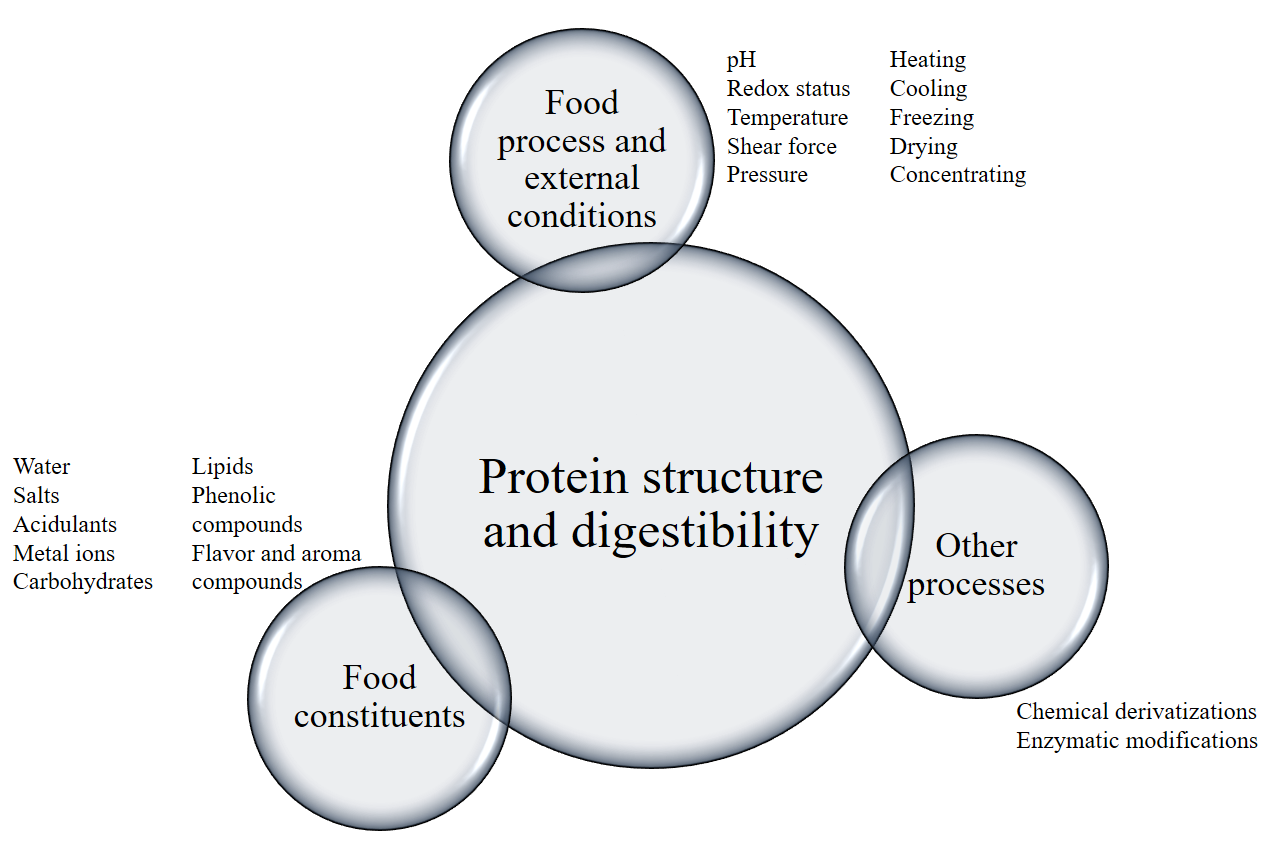 |
|
Proteins can be broadly classified by their origin (plant or animal based), amino acid composition (essential versus non-essential; complete versus incomplete), and their digestibility. The composition or quality of various proteins may be so unique that their influence on physiological function in the human body can be quite different. The ability to accurately and objectively define protein quality plays an important role in addressing human nutrition requirements, nutrition policy, trade, and product development. Such quality is influenced by the availability of amino acids, which depends on various factors like protein origin, previous processing treatments, and interactions with other food components. We review the advances in dietary protein evaluation, focusing on the bioavailability of proteins and the changes suffered during food processing. The awareness of all the multidimensional factors involved, have allowed food scientists and technologists to tailor better processing conditions for improving protein overall quality, functional properties, digestibility, and bioavailability, and for consumers to form criteria for selecting appropriate food products.
Keywords: Protein, amino acid, nutritional changes, digestibility, food processing.
|
|
 |

